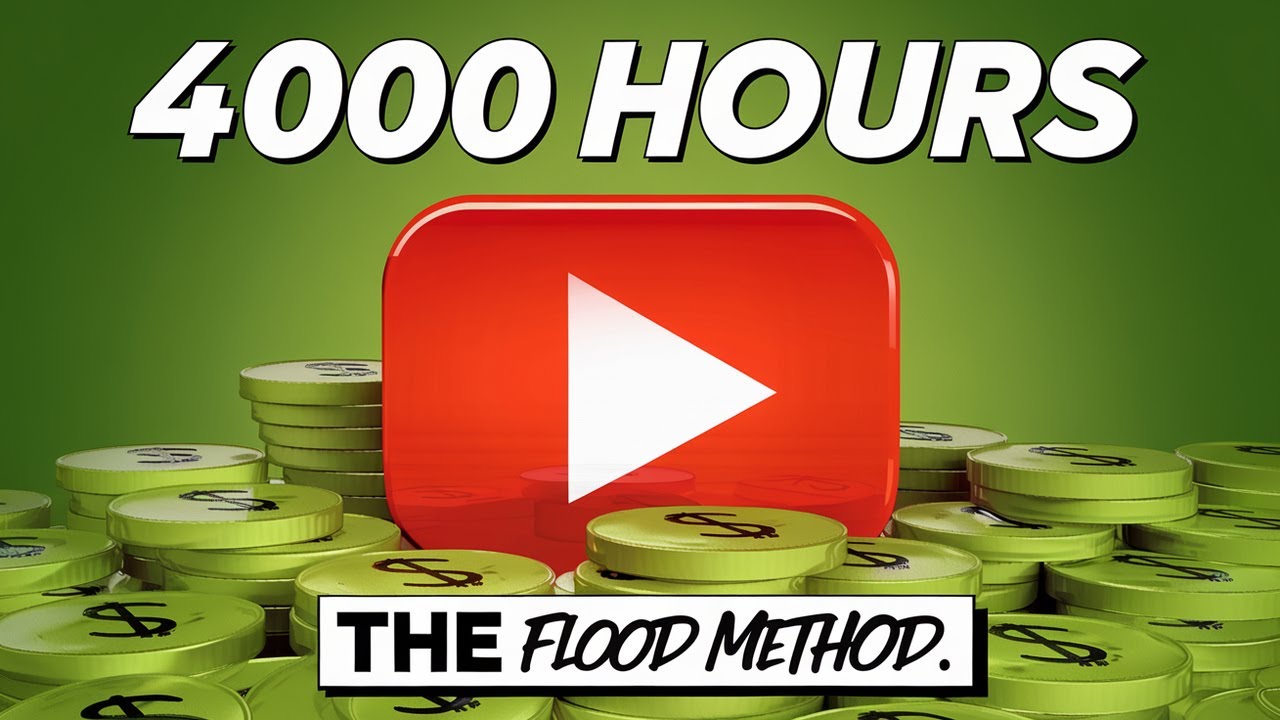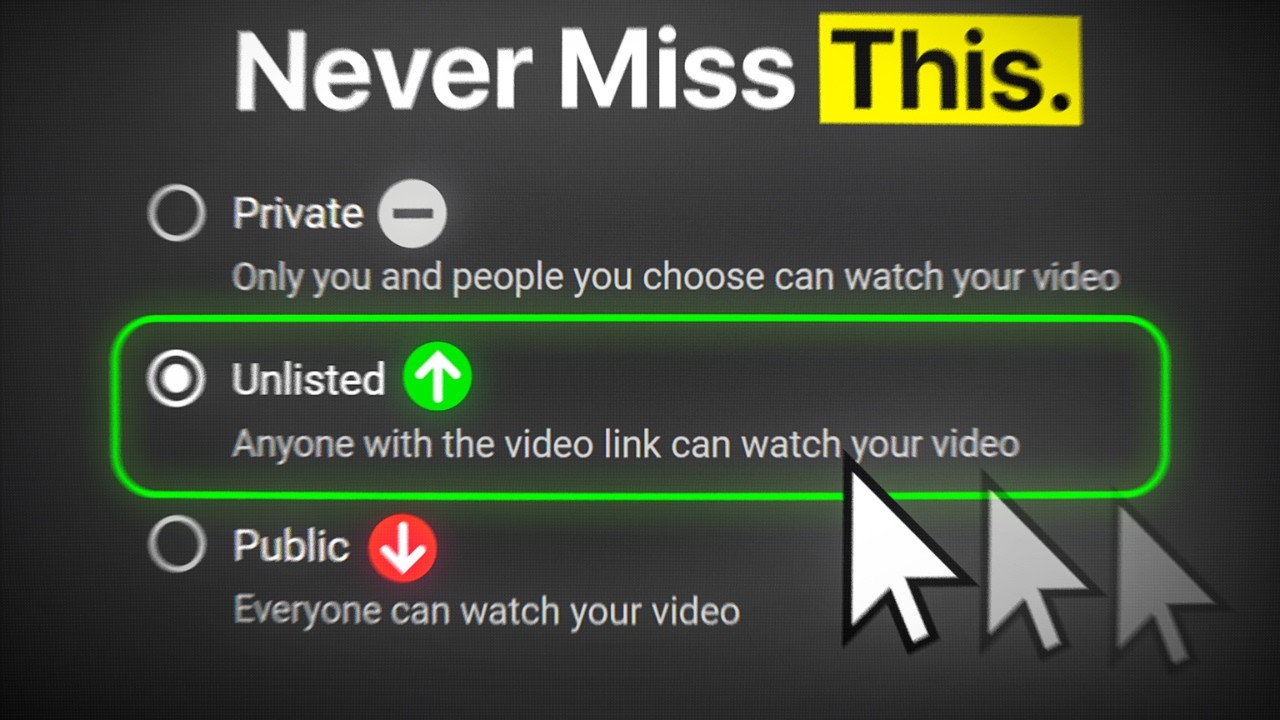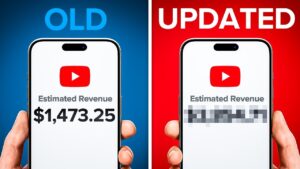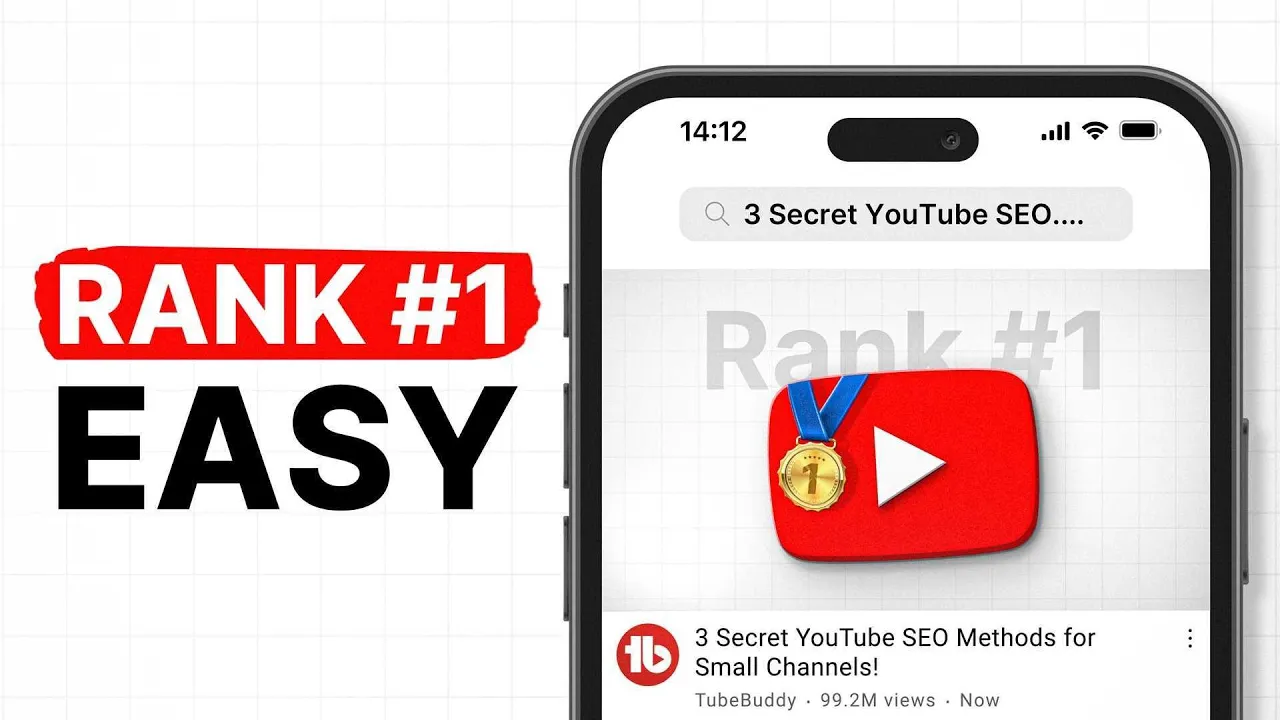Introduction: How to Rank on YouTube: Boost Your SEO Without Tags
Every creator has asked themselves how to rank on YouTube. If you’re making great videos and they’re not getting the attention they deserve, it’s the right question to ask.
If your YouTube videos not gaining the traction you hoped for and you’ve been following old advice that suggests the right tags are key, you’re not alone.
The lesson is this: tags matter, to a degree, but other things matter much (much) more.
Do tags help your video? Well, unless you’re misusing them, they don’t hurt. Tags are one signal YouTube uses to understand your video… but they’re low on the list. Other signals matter much more than tags.
In this post, we’ll talk through three powerful strategies to improve your YouTube SEO without relying on outdated (and ineffective) tricks like tag stuffing and trying to align your content with trending tags.
YouTube is always evolving, and so are the algorithms that decide what content gets seen. So let’s get some up-to-date advice to set your videos up for success.
Get an unfair advantage on YouTube
Give your YouTube channel the upper hand and easily optimize for more views, more subs, and more of every metric that matters.
Method 1: Get Global Views with Translated Titles
Want to tap into a global audience? You should.
Start by translating your video titles and descriptions. YouTube allows you to set up multiple language versions of your content, making it accessible to viewers around the world. This method is more than just adding subtitles; it’s about making your content discoverable in different languages.
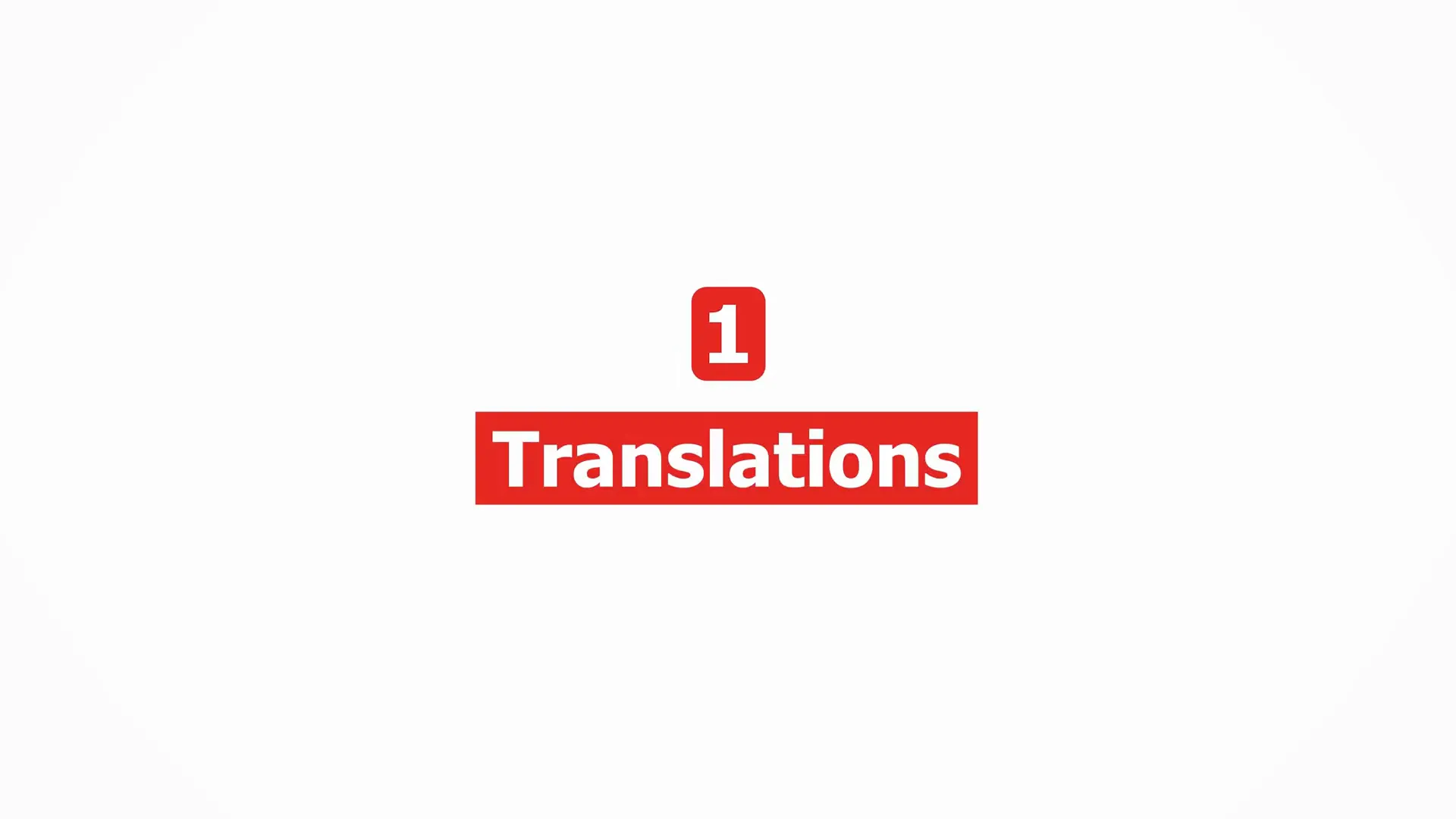
Why Translations Are Game-Changing for SEO
Translations are a game-changer for SEO because they expand your reach beyond language barriers. By offering your content in multiple languages, you open the door to new audiences who may be eager to engage with your content. Imagine someone searching in Portuguese and finding your video because you’ve taken the time to translate it.
Translating your content welcomes people from all over the world to engage your content, and it doesn’t take a lot of time or effort.
How to Add Translations to Your Videos in Seconds
Adding translations is easier than you might think: Head over to YouTube Studio, click on your video, go to subtitles, and add a language. Enter the translated title and description (from Google Translate or something better) then hit publish.
You can also use tools like TubeBuddy Auto Translate to automate this process and save time.
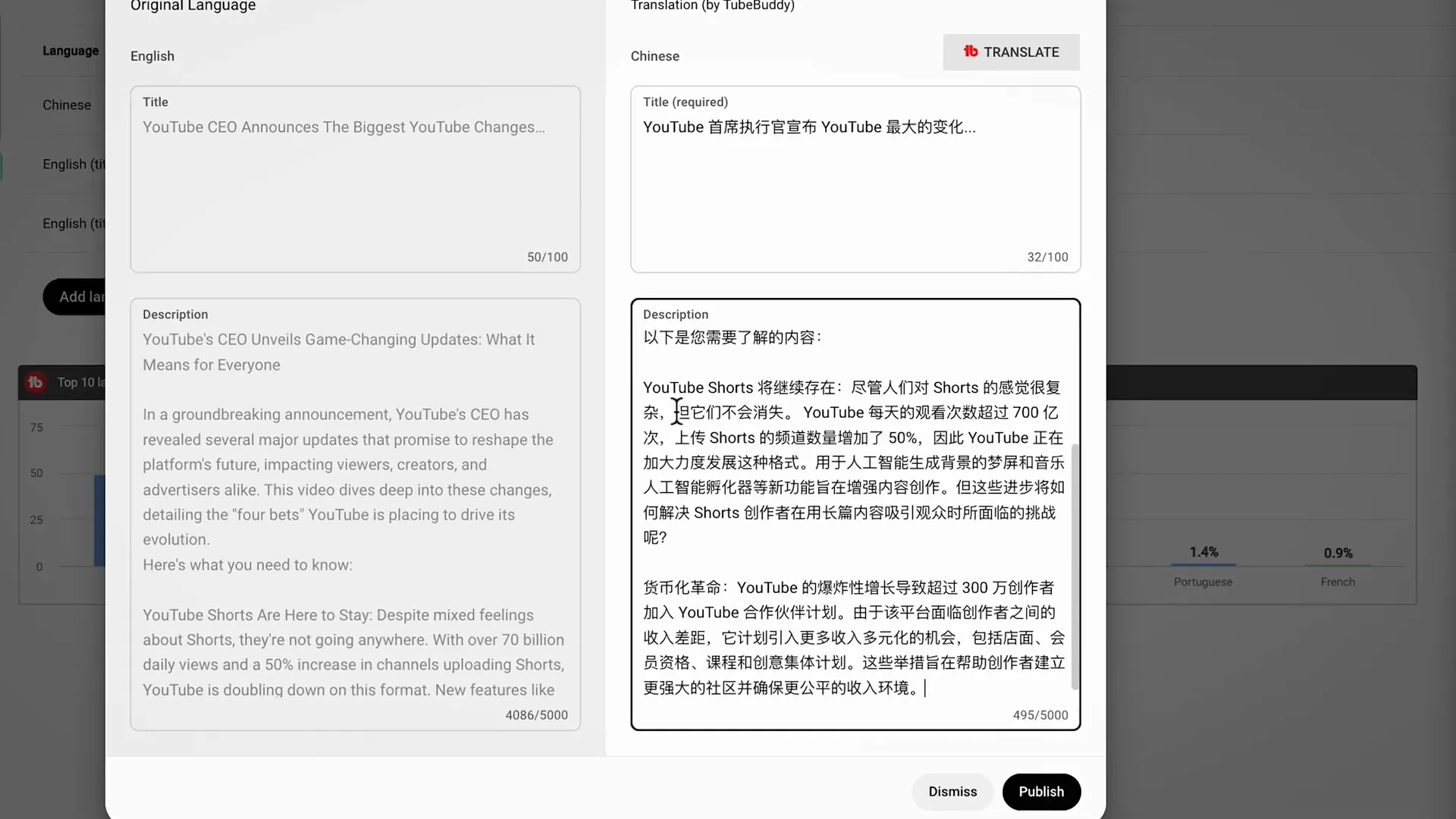
How to Pick the Best Languages for Your Viewers
Not sure which languages to translate into? Check your YouTube Analytics for insights.
Head to the audience section to see where your viewers are coming from. This data will guide you in choosing the most impactful languages for your translations.
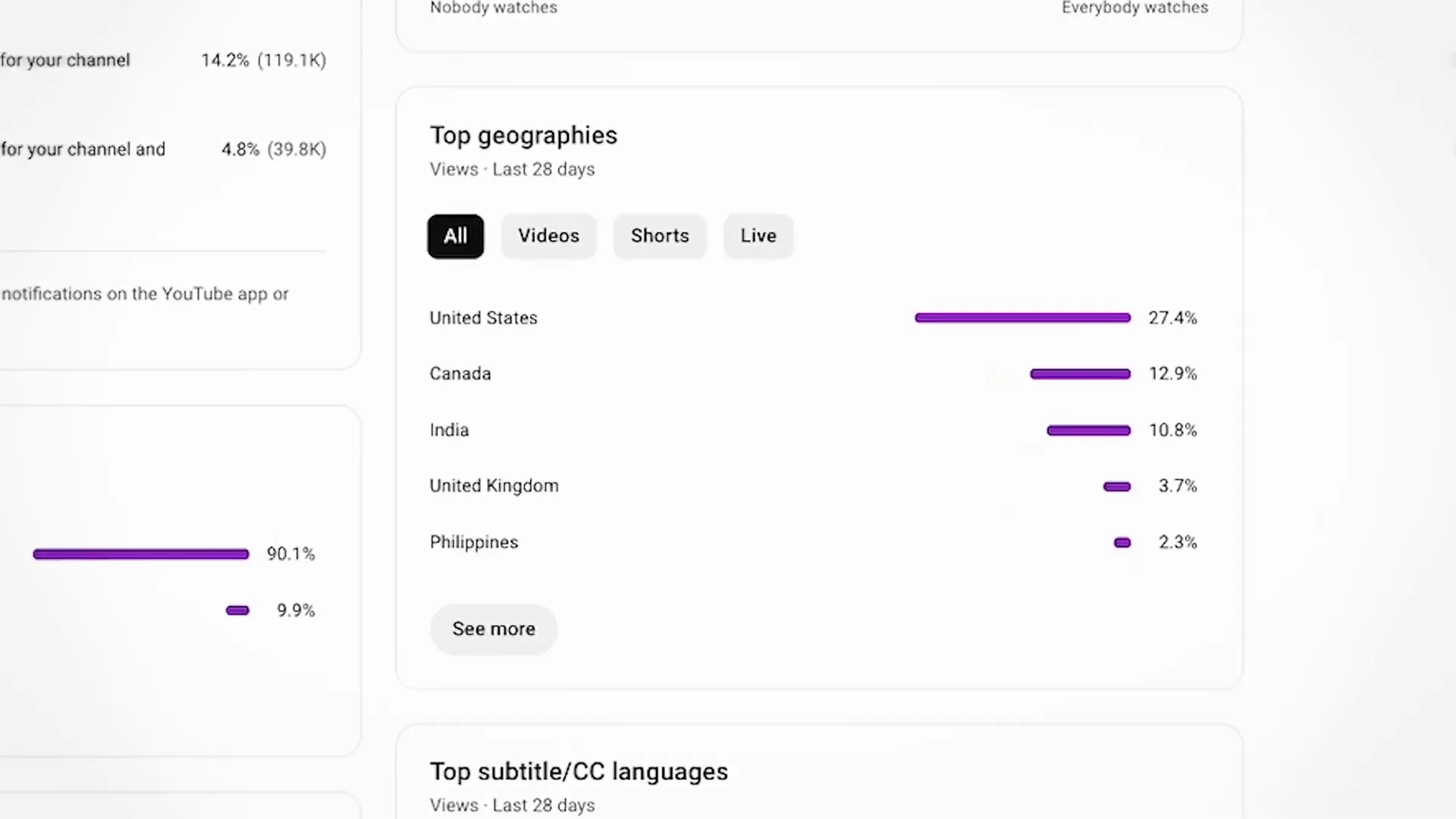
Method 2: Use Video Chapters for an SEO Boost
Video chapters don’t just make your videos easier to watch for viewers (hello, watch time), they’re a potent SEO tool in their own right.
Each chapter acts like a mini metadata point, enhancing your video’s visibility in search results. Just think like a viewer and use descriptive phrases for chapter titles. This way, you can attract viewers who are searching for specific information.
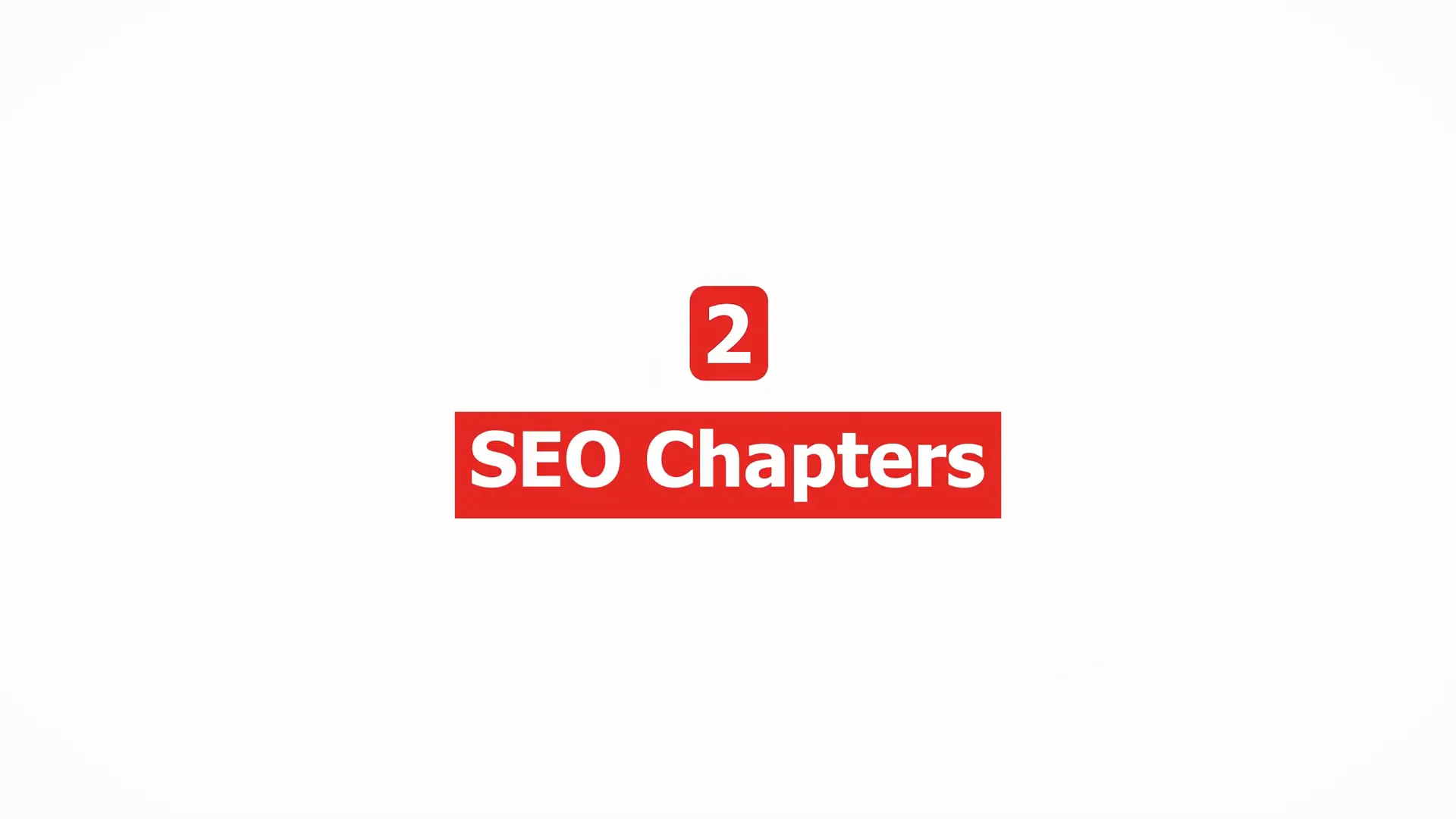
Easy Chapter Creation with TubeBuddy
Creating chapters takes a little time but it’s not hard. With the TubeBuddy Chapter Editor, the process of scrubbing through your video and adding chapters is even easier. This tool streamlines the process, letting you focus on crafting engaging titles that will show up in search and draw viewers in.
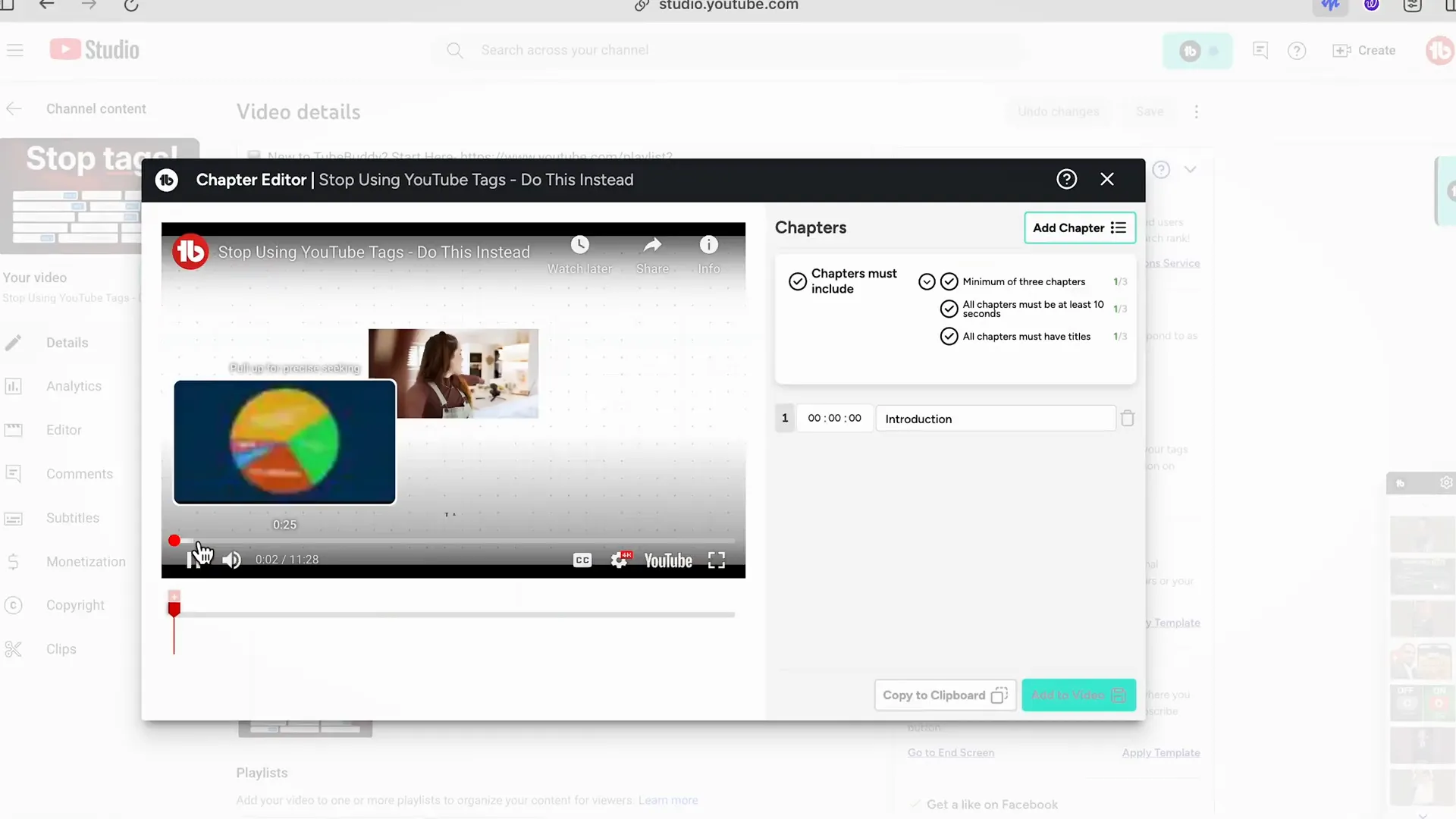
Method 3: Use Audio Keywords for Better Rankings
Did you know YouTube’s algorithm listens to your videos? It makes sense. With AI, transcription is faster and more accurate than ever before. That means YouTube can analyze the audio of your video to understand its content and match it with relevant searches. By naturally incorporating keywords in your script, you can boost your video’s ranking without stuffing keywords into titles and descriptions.
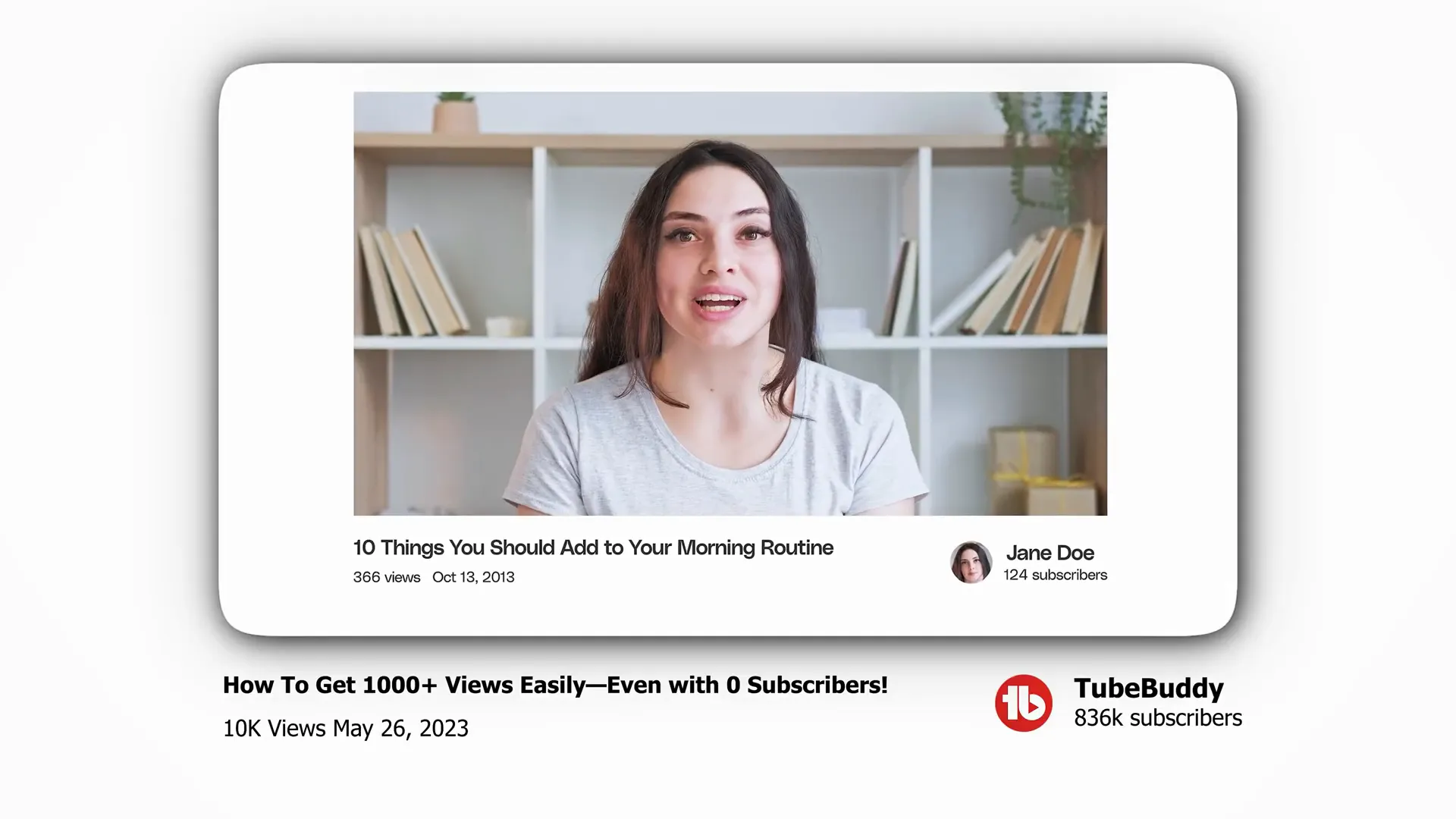
How YouTube Figures Out What Your Videos Are About
YouTube’s algorithm is pretty smart. It pieces together clues and cues from every upload. It examines your video’s audio track to determine the subject matter. In other words, what you say (in your video) is just as important as what you write (in your title, description, and yes, tags).
Don’t over-do it, but make sure your script hits the big keywords that reflect your video’s theme, and incorporate those keywords naturally.
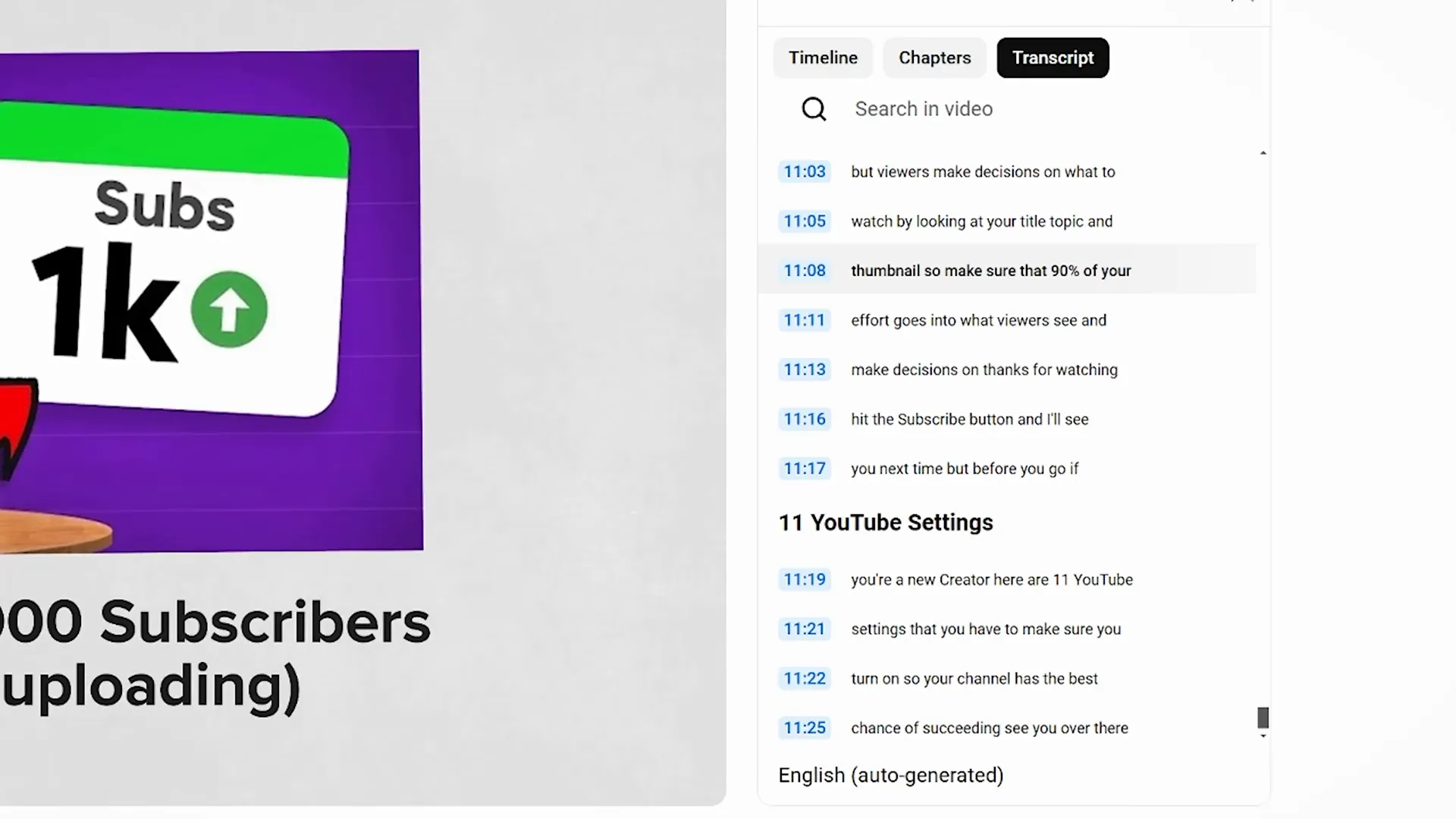
How to Rank High Without Overloading Keywords
Overloading your video with keywords can do more harm than good. Instead, focus on a few key phrases that encapsulate your content and weave them naturally into your script. This approach keeps your content authentic and engaging while still optimizing for search.
Pick Your Next Big SEO Move
Now that you’re armed with these strategies, it’s time to choose your next move. Whether it’s translations, chapters, or audio keywords, pick one method to implement in your next videos.
Then — and this is important — keep it up and experiment with the next one.
How to Get More Views with Every Video You Post
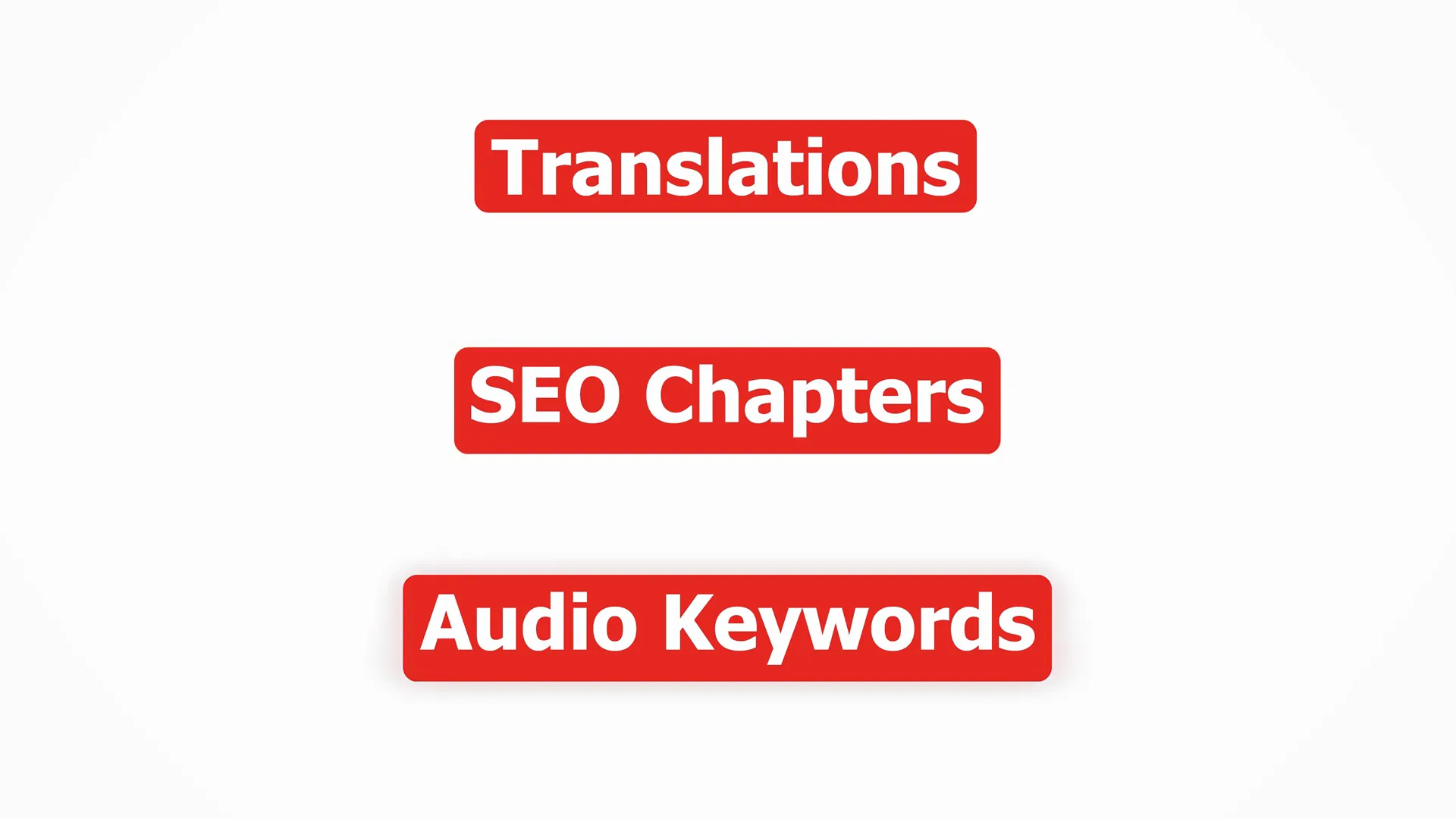
Ultimately, the goal is to get more eyes on your content. By employing these SEO strategies, you’re setting yourself up for success. Consistency, optimization, and audience engagement are key. Keep iterating, learning, and improving with each video you post.
For more insights and tips, check out the TubeBuddy Blog and join our community. Happy creating!
Get an unfair advantage on YouTube
Give your YouTube channel the upper hand and easily optimize for more views, more subs, and more of every metric that matters.
